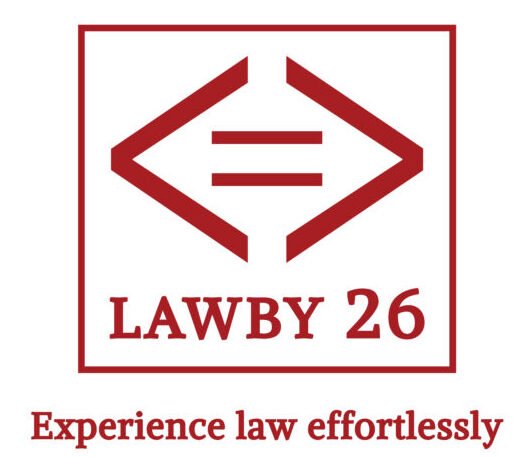Marriage is considered to be a sacred union for generations in India. It is quite a big deal and is considered one of the most critical events in one’s life. In a country like India, which is so diverse, there are many customs regarding marriage. Every religion has a different tradition, and even within every religion, there are different castes or sects which follow different traditions. As fascinating as it is, the reality is quite exhausting. Different customs require different sets of rules and laws. Different laws for marriage are not enough. Because, marriage is not always a bed of roses. It comes with a pile of thorns called the separation. Earlier, separation and divorce were not spoken about in a marriage. But that’s not the same now. In 2016, 1.36 million were divorced. The divorced rates in north-east states are relatively higher. These increasing numbers are due to various reasons, including changing societal dynamics, the perception of marriage as a lifelong commitment has changed, migration, legal awareness, increased cost of living, and the impact of social media, etc.
In India, same-sex marriage is still not legally recognised; therefore, when we refer to a married or a divorced couple, it’s about a man and a woman only. Therefore, none of the rules about marriage, divorce, or maintenance apply to same-sex couples. When we talk about alimony, it means maintenance or support. Providing financial support to the partner is a legal obligation that has to be given to the spouse. However, the general meaning doesn’t cover all the religions in India. If marriage has a religion, so does divorce.
In the Hindu Marriage Act, 1955 (HMA), Section 24 talks about maintenance. Usually, when we say maintenance, we associate it with a man giving financial support to his wife. But that’s not the case here. Section 24 does not discriminate. The man and the wife are entitled to claim compensation under the Act. It depends on the financial stability or the ability to care for themselves or their partners to be divorced. Section 25 of the HMA talks about pendente lite. In addition to Section 24 of the HMA, Section 18 of the Hindu Adoption and Maintenance Act, 1956 gives an option to the wife to claim maintenance from her husband if specific criteria are proved, such as cruelty, bigamy, leprosy, conversion to another religion are a few to mention. Recently, in Rajnesh v. Neha , it was held that if maintenance is not paid regularly to the dependent unemployed wife and minor children, contempt proceedings for wilful disobedience may be initiated before the appropriate Court.
Regarding a Christian couple, maintenance is discussed in the Indian Divorce Act 1869. Sections 36, 37, and 38 of the Act deal with the wife claiming divorce. Section 36 deals with the money or support to be given to the wife during the pendency of the suit. Section 37 deals with the concept of permanent alimony. In this case, the court decides the duration of the payments and how they should be made. This can be weekly or monthly, depending on the financial stability of the wife and the earning capacity of the husband as well.
The maintenance of a Parsi couple is governed by Section 40 of the Parsi Marriage and Divorce Act 1936. Section 40 talks about permanent alimony and maintenance. It states, “(1) Any Court exercising jurisdiction under this Act may, at the time of passing any decree or at any time after it, on an application made to it for the purpose by either the wife or the husband, order that the defendant shall pay to the plaintiff for her or his maintenance and support, such gross sum or such monthly or periodical sum, for a term not exceeding the life of the plaintiff as having regard to the defendants own income and other property, if any, the income and other property of the plaintiff, the conduct of the parties and other circumstances of the case, it may seem to the Court to be just, and any such payment may be secured, if necessary, by a charge on the movable or immovable property of the defendant.
(2) The Court, if it is satisfied that there is a change in the circumstances of either party at any time after it has made an order under sub-section (1), it may, at the instance of either party, vary, modify or rescind any such order in such manner as the Court may deem just.
(3) The Court if it is satisfied that the party in whose favour an order has been made under this section has remarried or, if such party is the wife, that she has not remained chaste, or, if such party is the husband, that he had sexual intercourse with any woman outside wedlock, it may, at the instance of the other party, vary, modify or rescind any such order in such manner as the Court may deem just.”
When it comes to a Muslim couple, the women can file for maintenance under the Muslim Women (Protection of Rights on Divorce) Act, 1986. After divorce, she is entitled to a reasonable amount throughout the iddat period, an amount equal to the dowry agreed to be paid during the time of marriage, and a title of the properties given to her either before or after the marriage. She will be eligible for maintenance if she decides not to remarry, has children, and can’t support them. The State Wakf Board shall be ordered to pay maintenance if she has no one else. In Danial Latifi v. Union of India [2001 AIR SCW 3932], it was stated that the Muslim Women (Protection of Rights on Divorce) Act 1986, as well as the CrPC, can be used for remedies for a divorced Muslim woman.
Apart from all the personal laws, Section 125 of the Code of Criminal Procedure (CrPC) discusses maintaining wives, children, and parents. Although there are so many laws and judgements regarding divorce, it still needs to be a more vocal concept amongst many. The taboo attached to divorce still exists even now, even in urban cities. In a way, we can say that maintenance is the law’s way of telling women, “Don’t worry; I’ve got you covered.”
Done By: Anoushka Samyuktha, B.A LL.B (Hons), LLM (Criminal Law), Junior Legal Consultant
For Origin Law Labs



